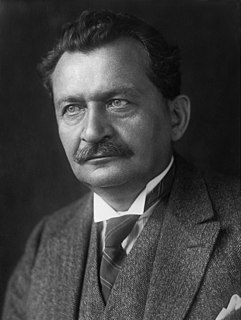| |||||||||||||||||||||||||||||||||||||||||||||||||||||||||||||
All 423 seats in the Weimar National Assembly 212 seats needed for a majority | |||||||||||||||||||||||||||||||||||||||||||||||||||||||||||||
|---|---|---|---|---|---|---|---|---|---|---|---|---|---|---|---|---|---|---|---|---|---|---|---|---|---|---|---|---|---|---|---|---|---|---|---|---|---|---|---|---|---|---|---|---|---|---|---|---|---|---|---|---|---|---|---|---|---|---|---|---|---|
| Turnout | 83.0% | ||||||||||||||||||||||||||||||||||||||||||||||||||||||||||||
| |||||||||||||||||||||||||||||||||||||||||||||||||||||||||||||
 Electoral results by districts, strongest parties: ■ – SPD ■ – USPD ■ – Centre/BVP ■ – DNVP | |||||||||||||||||||||||||||||||||||||||||||||||||||||||||||||
| |||||||||||||||||||||||||||||||||||||||||||||||||||||||||||||
Federal elections were held in Germany on 19 January 1919, [1] although members of the standing army in the east voted for their representatives only on 2 February. The elections were the first of the new Weimar Republic following World War I and the Revolution of 1918–19. It was also the first German election held using proportional representation and with women's suffrage. It is also reckoned as the first truly free and fair all-German election, as it was the first to be held after the scrapping of the old constituencies that over-represented rural areas. The voting age was lowered to 20, down from 25 which it had been in the Reichstag election of 1912.

The Weimar Republic is an unofficial historical designation for the German state from 1918 to 1933. The name derives from the city of Weimar, where its constitutional assembly first took place. The official name of the republic remained Deutsches Reich unchanged from 1871, because of the German tradition of substates. Although commonly translated as "German Empire", the word Reich here better translates as "realm", in that the term does not have monarchical connotations in itself. The Reich was changed from a constitutional monarchy into a republic. In English, the country was usually known simply as Germany.

World War I, also known as the First World War or the Great War, was a global war originating in Europe that lasted from 28 July 1914 to 11 November 1918. Contemporaneously described as "the war to end all wars", it led to the mobilisation of more than 70 million military personnel, including 60 million Europeans, making it one of the largest wars in history. It is also one of the deadliest conflicts in history, with an estimated nine million combatants and seven million civilian deaths as a direct result of the war, while resulting genocides and the 1918 influenza pandemic caused another 50 to 100 million deaths worldwide.

The German Revolution or November Revolution was a civil conflict in the German Empire at the end of the First World War that resulted in the replacement of the German federal constitutional monarchy with a democratic parliamentary republic that later became known as the Weimar Republic. The revolutionary period lasted from November 1918 until the adoption in August 1919 of the Weimar Constitution.
Austrian citizens living in Germany were allowed to vote, in the same way that German citizens living in Austria were also allowed to vote in the Austrian Constitutional Assembly election in the same year. [2]
From its inaugural session on 6 February, the National Assembly (Nationalversammlung) functioned as both a constituent assembly and unicameral legislature. On 13 February, provisional Reichspräsident (President) Friedrich Ebert appointed Philipp Scheidemann Reichsministerpräsident (Minister President, the office was renamed Chancellor only when the Weimar Constitution came into force in August 1919). Scheidemann's government replaced the revolutionary Rat der Volksbeauftragten (Council of the People's Deputies). The supporting parties of the "Weimar Coalition" (SPD, Zentrum and DDP) together won 76.2% of the votes cast. Voter turnout was 83.0%. [3]

The Weimar National Assembly was the constitutional convention and de facto parliament of Germany from 6 February 1919 to 6 June 1920. The assembly drew up the new constitution which was in force from 1919 to 1933, technically remaining in effect even until the end of Nazi rule in 1945. It convened in Weimar, Thuringia and is the reason for this period in German history becoming known as the Weimar Republic.
A constituent assembly or constitutional assembly is a body or assembly of popularly elected representatives composed for the purpose of drafting or adopting a constitutional-type document. The constituent assembly is a subset of a constitutional convention elected entirely by popular vote; that is, all constituent assemblies are constitutional conventions, but a constitutional convention is not necessarily a constituent assembly. As the fundamental document constituting a state, a constitution cannot normally be modified or amended by the state's normal legislative procedures; instead a constitutional convention or a constituent assembly, the rules for which are normally laid down in the constitution, must be set up. A constituent assembly is usually set up for its specific purpose, which it carries out in a relatively short time, after which the assembly is dissolved. A constituent assembly is a form of representative democracy.

Friedrich Ebert was a German politician of the Social Democratic Party of Germany (SPD) and the first President of Germany from 1919 until his death in office in 1925.
















